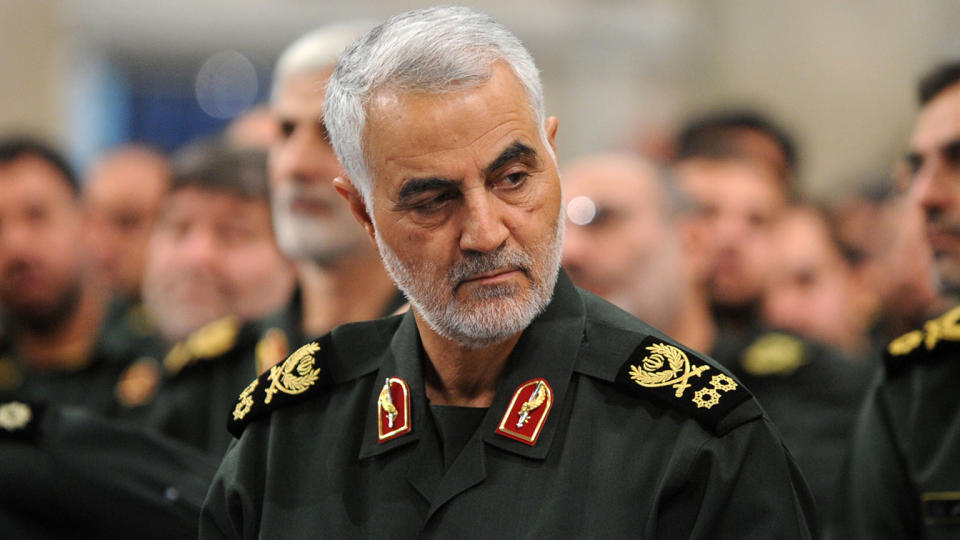Did the U.S. 'assassinate' Iranian general or just kill him? Why it matters
A debate over how to describe the killing of Iranian Gen. Qassem Soleimani reached the 2020 Democratic primary over the weekend as candidates argued whether or not the drone strike that killed him constituted an “assassination.”
Soleimani, the charismatic face of Iran’s expansionist Middle East policy and head of the Quds Force — the special operations and intelligence branch of Iran’s Revolutionary Guard — was killed by an American drone outside the Baghdad airport on Friday. The White House said Iran “was actively developing plans to attack American diplomats and service members in Iraq and throughout the region.” But when pressed Sunday about whether intelligence showed that attacks were “imminent,” Secretary of State Mike Pompeo dodged the question.
Sen. Bernie Sanders immediately called it an assassination in a statement distributed by his campaign. Sen. Elizabeth Warren did the same in a series of tweets on Saturday, saying “Donald Trump ... assassinated a senior foreign military official. He’s been marching toward war with Iran since his first days in office — but the American people won’t stand for it.”
Former New York City Mayor Michael Bloomberg, currently lagging behind both candidates in the polls, took exception to that description.
“This is a guy who had an awful amount of American blood on his hands,” Bloomberg said Saturday. “I think that’s an outrageous thing to say. Nobody that I know of would think that we did something wrong in getting the general.”
Appearing on CNN’s “State of the Union” Sunday, South Bend, Ind., Mayor Pete Buttigieg said, “I am not interested in the terminology.”
But the terminology used to describe Soleimani’s killing is important when it comes to both U.S. and international law.

In 1976, President Gerald Ford issued an executive order to make political assassinations illegal after revelations that the CIA had organized or sanctioned assassination attempts against foreign leaders, including Fidel Castro.
“No person employed by or acting on behalf of the United States Government shall engage in, or conspire to engage in, assassination,” the executive order states.
But Ford’s order does not define what constitutes an assassination. In common usage it has been interpreted to mean the killing of a political leader in peacetime.
International law also forbids peacetime assassinations. The Hague and the Geneva Conventions prohibit the premeditated killing of a specific individual commander for what they have done on the battlefield or what they may do.
While the United States has never declared formal war on Iran, it has long engaged in a shadow war in the Middle East, and since 9/11 has engaged in targeted killings of terror leaders including Osama bin Laden and, just a few months ago, ISIS leader Abu Bakr al-Baghdadi.
In justifying the attack on Soleimani, administration officials have cited the Authorization for Use of Military Force passed in September 2001 or the 2002 AUMF, which allows force against the vague “continuing threat posed by Iraq.” Rep. Barbara Lee, D-Calif., was the only legislator to vote against the 2001 AUMF and has been fighting for years to repeal them.
Legal experts are divided on the issue.
Mary Ellen O’Connell, an expert in international law and the laws of war at the University of Notre Dame School of Law, told the Associated Press that Soleimani’s killing was “clearly an assassination.”
Duke Law Professor Madeleine Morris said the law is not terribly clear, especially since the Trump administration has yet to publicly disclose intelligence about imminence of any planned attack.
“The problem is that governments have good reason to make very little public in this situation, which makes it very difficult to evaluate the situation politically or legally,” she said.
_____
Read more from Yahoo News:


